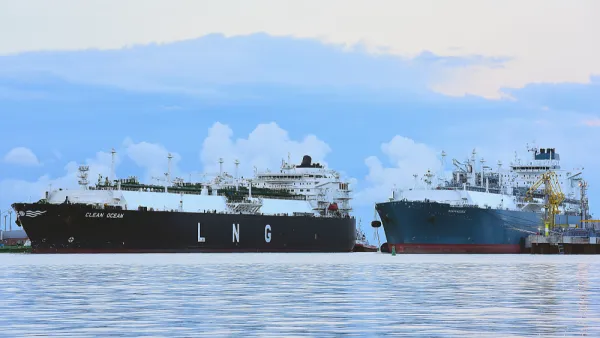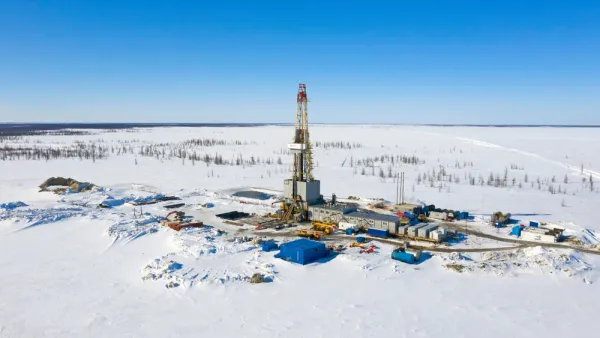Surging oil and natural gas production has transformed the domestic energy paradigm. With the U.S. on track to replace Saudi Arabia as the world's largest oil producer, will the U.S finally meet President Nixon's 1973 goal of 'energy independence'?
National Public Radio has been exploring different aspects of rising fossil fuel production in the U.S., which is largely a result of the controversial drilling technique known as hydraulic fracturing, also known as fracking.
On Oct. 24, Steve Inskeep reported that "(T)he United States could soon overtake Saudi Arabia as the world's biggest oil producer. The Associated Press reports new drilling methods have boosted U.S. oil production 7 percent this year alone. And next year, the Energy Department sees American output falling just shy of Saudi Arabia's 11.6 million barrels per day. Industry analysts predict that by 2020, North America could be the new Middle East."
On Oct. 25, Tom Gjelten delved into GOP presidential nominee Mitt Romney's "national goal of North American energy independence by the year 2020".
"With that promise, Romney joins a long line of U.S. leaders (originating with the 1973 Arab oil embargo) who have preached the virtues of energy independence. Few, however, have explained precisely what this goal means", Gjelten states (on audio and via text)." Mitt Romney does distinguish his goal by calling for North American, rather than U.S., energy independence.
Gjelten explains why energy independence is "impossible".
"In truth, it would be virtually impossible for any country to be totally independent where energy is concerned. Not only would it have to produce all its own oil; it would also have to be independent of the global economy." In other words, any disruption in world oil supply would have a direct affect on the price of gasoline that motorists pay at the pump.
"With respect to price, therefore, there is no such thing as energy independence. Even if the U.S. were producing as much oil as it was consuming, a halt in production by Iran or Saudi Arabia would still drive up the oil price in the U.S.", Gjelten explains.
So why 'security' rather than independence?
"If a country produces as much oil as it uses, it is less vulnerable to some foreign country shutting the tap. Amy Jaffe, executive director of energy and sustainability at the University of California, Davis, says this is the big reason governments want to reduce their dependence on foreign oil producers."
"I prefer the term 'energy security,'" says Roger Altman, who served as deputy Treasury secretary under President Clinton", who further explains the significance of not being dependent on "rogue nations" for oil.
So while oil supplies would be safe, the price on the gasoline pump would be based on the global price - regardless of the amount of oil drilled in North America.
[Note: Planetizen posted a March NPR report on different aspects of energy independence and a summary of a New York Times article on a similar issue].
FULL STORY: U.S. Closing In On Saudi Arabia's Oil Production

Analysis: Cybertruck Fatality Rate Far Exceeds That of Ford Pinto
The Tesla Cybertruck was recalled seven times last year.

National Parks Layoffs Will Cause Communities to Lose Billions
Thousands of essential park workers were laid off this week, just before the busy spring break season.

Retro-silient?: America’s First “Eco-burb,” The Woodlands Turns 50
A master-planned community north of Houston offers lessons on green infrastructure and resilient design, but falls short of its founder’s lofty affordability and walkability goals.

Test News Post 1
This is a summary

Analysis: Cybertruck Fatality Rate Far Exceeds That of Ford Pinto
The Tesla Cybertruck was recalled seven times last year.

Test News Headline 46
Test for the image on the front page.
Urban Design for Planners 1: Software Tools
This six-course series explores essential urban design concepts using open source software and equips planners with the tools they need to participate fully in the urban design process.
Planning for Universal Design
Learn the tools for implementing Universal Design in planning regulations.
EMC Planning Group, Inc.
Planetizen
Planetizen
Mpact (formerly Rail~Volution)
Great Falls Development Authority, Inc.
HUDs Office of Policy Development and Research
NYU Wagner Graduate School of Public Service




























